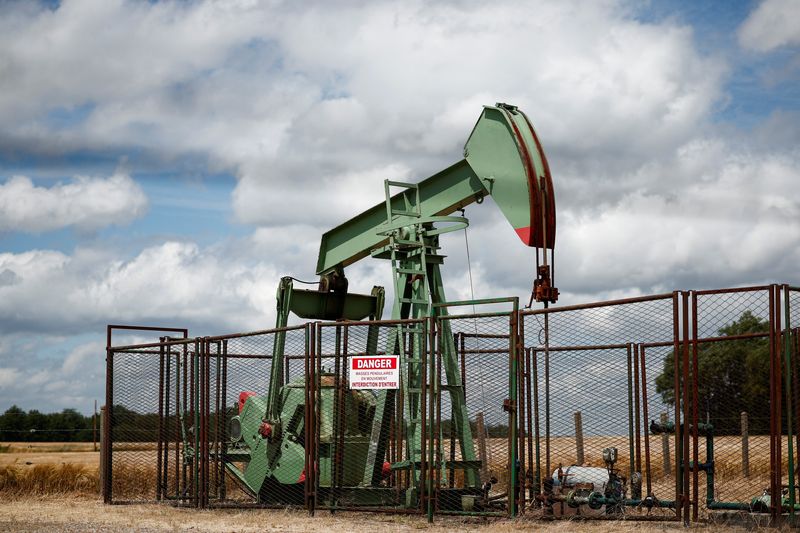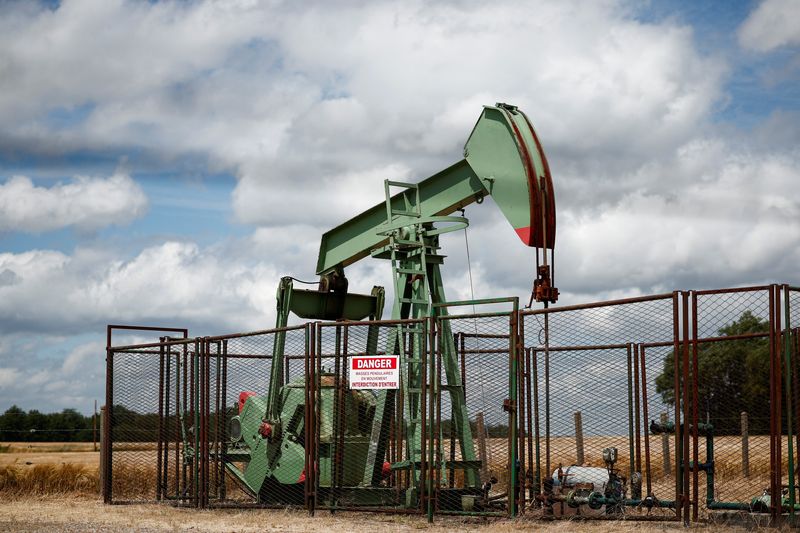
By Florence Tan and Siyi Liu
SINGAPORE (Reuters) -Oil prices slid on Monday amid a strong U.S. dollar, concerns over sanctions and ahead of key economic data by the U.S. Federal Reserve and U.S. payrolls later in the week.
Brent crude futures slid 21 cents, or 0.3%, to $76.3 a barrel by 0445 GMT after settling on Friday at its highest since Oct. 14.
U.S. West Texas Intermediate crude was down 19 cents, or 0.3%, at $73.77 a barrel after closing on Friday at its highest since Oct. 11.
Oil posted five-session gains previously with hopes of rising demand following colder weather in the Northern Hemisphere and more fiscal stimulus by China to revitalise its faltering economy.
However, the strength of the dollar is on investor’s radar, Priyanka Sachdeva, a senior market analyst at Phillip Nova, wrote in a report on Monday.
The dollar stayed close to a two-year peak on Monday, a stronger dollar makes it more expensive to buy the greenback-priced commodity and hence reins in pressure on oil.
Investors are also awaiting economic news for more clues on the Federal Reserve’s rate outlook and energy consumption.
Minutes of the Fed’s last meeting is due Wednesday and the December payrolls report will come on Friday.
Also weighing on sentiment was supply disruptions of Iranian and Russian oil as Western countries ramped up their sanctions.
The Biden administration plans to impose more sanctions on Russia over its war on Ukraine, taking aim at its oil revenues with action against tankers carrying Russian crude, two sources with knowledge of the matter said on Sunday.
Goldman Sachs expects Iran’s production and exports to fall by the second quarter as a result of expected policy changes and tighter sanctions from the administration of incoming U.S. President Donald Trump.
Output at the OPEC producer could drop by 300,000 barrels per day to 3.25 million bpd by second quarter, they said.

The U.S. oil rig count, an indicator of future output, fell by one to 482 last week, a weekly report from energy services firm Baker Hughes (NASDAQ:BKR) showed on Friday.
Still, the global oil market is clouded by a supply surplus this year as a rise in non-OPEC supplies is projected by analysts to largely offset global demand increase, also with the possibility of more production in the U.S. under Trump.
This post is originally published on INVESTING.



